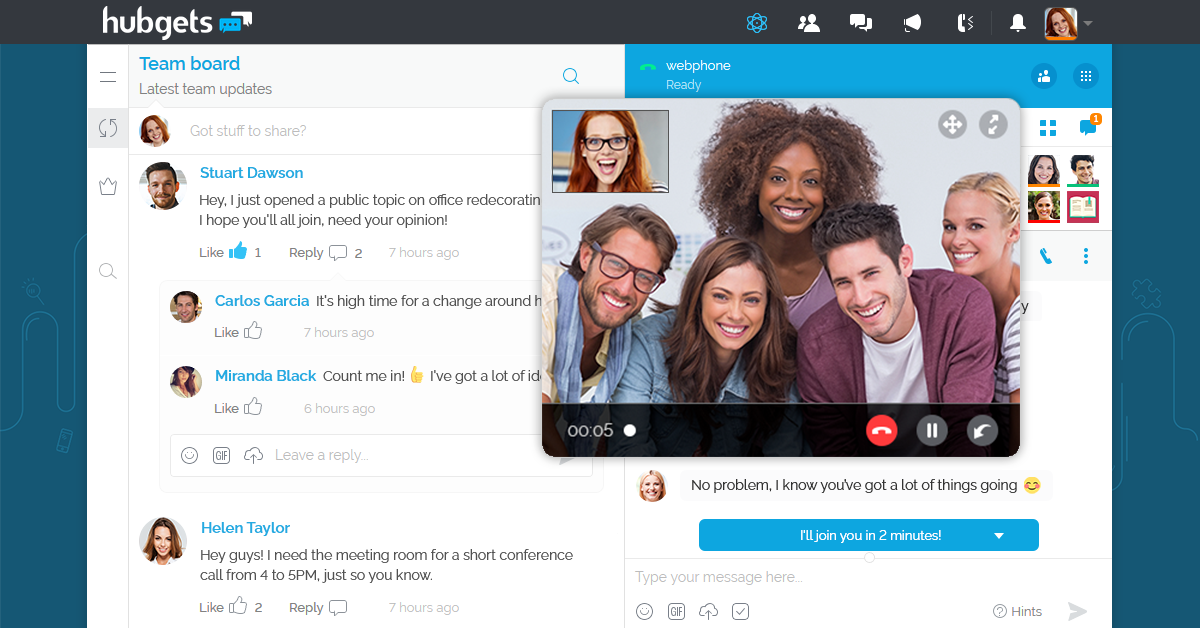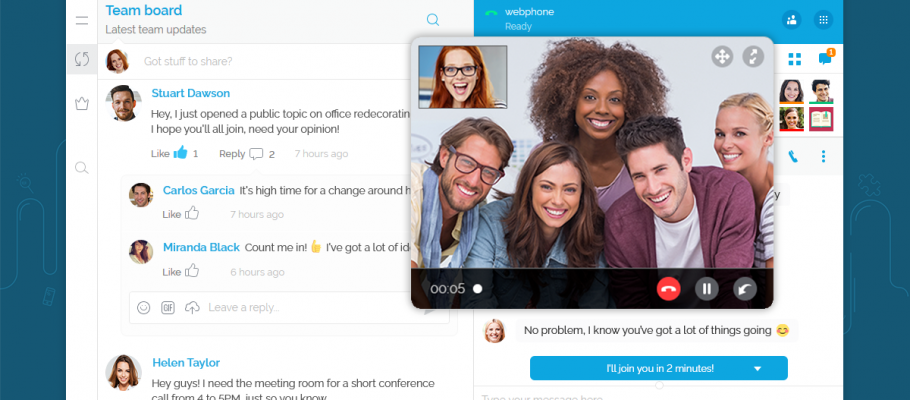To connect with customers, particularly online, is a priority for many businesses. Yet, in this day and age, you need to cover all the bases. It’s no longer enough to create an amazing product and offer an impeccable service. In fact, despite smart promotion strategies and heavy-set marketing campaigns, it may still not be enough.

Posts Tagged Under: instant team communication
Achievable goals are the pinnacle of a smart goal-setting strategy. Sure, you should be able to achieve your goals, generally speaking. Yet, there is a lot more to achievable goals. This is because goals are high-productivity enablers. By itself, goal-setting provides structure to individual or team efforts.
And making sure that goals are achievable builds on that. Most of all, achievable goals motivate. They become a milestone. One that requires resilience. To put it simply, achievable goals are something people feel. Achievable goals reward because they feel like the achievement that they are.

Virtual meetings are a modern flavor of regular meetings. With the help of technology, participants can meet up despite limitations like different locations, different time zones or differing schedules. Real-time virtual meetings allow participants to meet up from anywhere, at any time. And, alongside many other productivity and collaborative tools, they enhance and improve cooperation.

Working remotely is on the rise. More and more people want to work from a location of their choice. At home, wearing pajamas, on a flexible schedule. On a beach, next to a pinna colada.
Internet innovation drives remote work. Bundles of tech solutions. Long commutes in regular jobs incentivize it even further. Besides, research shows remote workers are more productive. They do more with less, which leads to work intensification.
To be fair, the reverse is nearly as likely. People that do remote work have to be productive to make the cut. The vast majority of people, however, have issues with getting motivated. Everything is so distracting. There are far too many sources for interruptions. From getting the wrong order in a coffee shop to a noisy scanner in a co-working space. While at work, you at least have a productivity benchmark. And teams to boost your morale. At home, you might get stuck in between the fridge and the couch while binging on Netflix.

Negative feedback is criticism you receive when things did not go well. At one point or another, we all find ourselves at the receiving end of negative feedback. Be it a school activity or an internship report. Or perhaps even a multinational merger.
Negative feedback is part of our lives. It is how we grow and develop. By all means, it is how we learn. Yet, it’s always difficult to accept. And things hardly get any better. Receiving negative feedback is tough at all levels. You certainly feel much better receiving compliments. But human interactions open us to plenty of negative feedback.

Millennials are one of the largest generations in history. And they are set to transform the world we live in. By the time they retire, millennials will change transportation, commerce, work, education. Everything will be different. Even right now, they are already repainting the landscape.
Born between 1980 and 2000, millennials are the product of wave after wave of incredible changes. Hence, they’re less homogenous than other generations. Hence, diversity and tolerance are key aspects of this generation. At the same time, globalization and social media have had a significant impact. So many things have happened between 1980 and 2000. Each of them enough to make the world never the same again.

Brainstorming is key to teamwork. You can’t make team decisions without brainstorming ideas first. Also, in the absence of brainstorming sessions, solving problems would be a lot less effective. Yet, effective brainstorming is not an easy thing to do. That’s why I want to help you. Here are 8 different techniques that modern entrepreneurs and their prolific teams use to make your brainstorming sessions more effective.

Knowing how to delegate can make or break your team. Yet, we often feel odd about delegating or being delegated. And when it comes to flattened hierarchies, things get even odder. In fact, people tend to either under delegate or over-delegate.
To put it another way, knowing how to delegate is a skill. Without doubt, a very useful one. Despite being easy to understand, delegating is a tough skill to acquire. That’s because it’s an organic process. The nature of the work that needs delegating changes over time. Hence, figuring out how to delegate is something everyone should learn and practice.

Work changes occur all the time, in every company committed to making progress. However, one of the biggest obstacles that managers need to overcome along the way is people’s resistance to change. Managers often take it as a given, thinking it’s human nature. Even though there is some truth in that, it’s in their power to implement change in a way that would make it easier for everyone to get on board.

To stay productive despite being tired is an often-recurring challenge. We’ve all been there. For whatever reason, we feel tired yet we have to work. Having to deal with the consequences of not getting enough sleep is one thing. Add to this feeling exhausted, anxious or burned out. Sometimes it is work pressure that does it.
Without reservation, prolonged wakefulness is today’s second-hand smoking. Yes, this has much to do with sleep deprivation. Prolonged wakefulness means that we are not getting enough sleep. In fact, most people sleep far less than they should. And this can have significant impacts on cognitive performance. We also overindulge on coffee, and spend far too many hours sitting on a chair. We procrastinate, misuse breaks, don’t breathe right and have all sorts of productivity issue. Despite all of this, we often find ourselves in an odd situation. We need to stay productive while tired.










